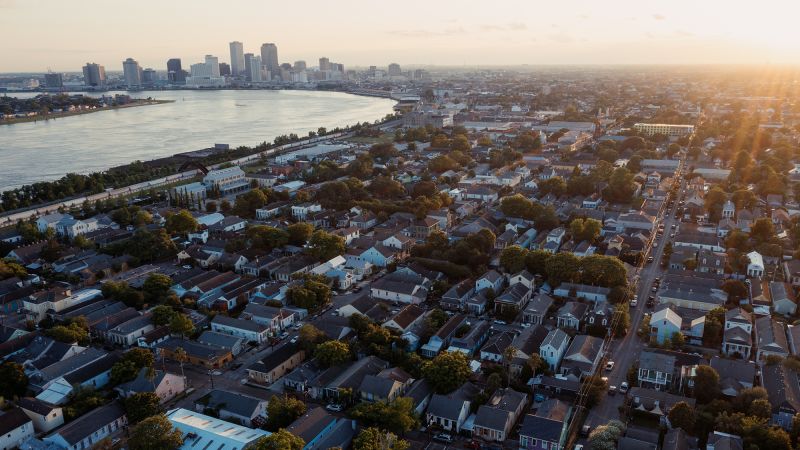The home insurance market is crumbling in New Orleans, leaving Alfredo Herrera with few options for coverage — and skyrocketing insurance premiums.
Herrera, 35, works in finance for a local bank. He bought his 900-square-foot home in New Orleans’ Mid-City neighborhood in 2020 for $270,000, and lives there with his partner.
In 2022, he paid $1,600 a year for home insurance. But last July, his insurer canceled his coverage, saying it was leaving Louisiana.
In the past, acquiring or keeping homeowners’ insurance didn’t present much of a problem.
But as climate change increases the frequency and severity of extreme weather, insurers — especially those in areas most impacted by floods and fires — are raising their premiums, or pulling out altogether, impacting the affordability and availability of home and fire insurance.



They could form a co-op and insure each other. Except the insurance companies bought state legislators (at rock-bottom prices!) and made that illegal.
¯\_(ツ)_/¯
I like when people think outside of the box
but let’s think about that concept.
you , myself, and 22 others live in a high risk flood zone. the insurance companies won’t insure us because of the high risk.
if we (the 24) try to insure ourselves, there is no way to gather enough premiums to offset the losses.
think about it, the insurance companies will insure LARGE numbers of homes. then use the premiums to pay for losses on a few of those homes. so when someones house burns down or gets destroyed by a flood there is money in the bank to cover the loss. but since it is a smaller number of people putting in premiums, there is a smaller amount of money in the pot to cover the loss.
all the homes are in a high risk flood zone, it wouldn’t take much for all the homes (in the co-op) to be destroyed in the same flood to wipe out the pile of cash and not have a way to rebuild.
i like your idea but the end result makes in a solution that just won’t work. sorry.
I argue this exact thing all the time. Insurance is an industry MEANT for scale. There’s no bankrupting medical insurance, there’s only bad rates that’s don’t cover costs (and hamstringing efforts to regulate price negotiation, essentially sanctioned profiteering from the public welfare). This is exactly why insurance should be nationalized and taken away from market specialization.
And for those that bemoan “government ran anything”, I counter with “corporate ran anything.” Private industry does not run more efficiently. Private industry might be more profitable but that’s at the cost of our humanity and planets survivability, so it’s inherently short sighted and worse long term. At least governemnt ran has the chance for civilian oversight and people aren’t shielded from accountability, thus allowing humanities worst natures to proliferate (see; GE, Dupont, Boeing, etc etc etc).
Corporations are just dark money fascist autocratic organizations. It’s built into the structure, hierarchy and obedience all the way down. It might pain you to see it as such, as we’ve all lived entirely under the propaganda to never question why we organize anything in this manner. All to benefit people who’s identities have been obfuscated, so they never have to work or want for anything.